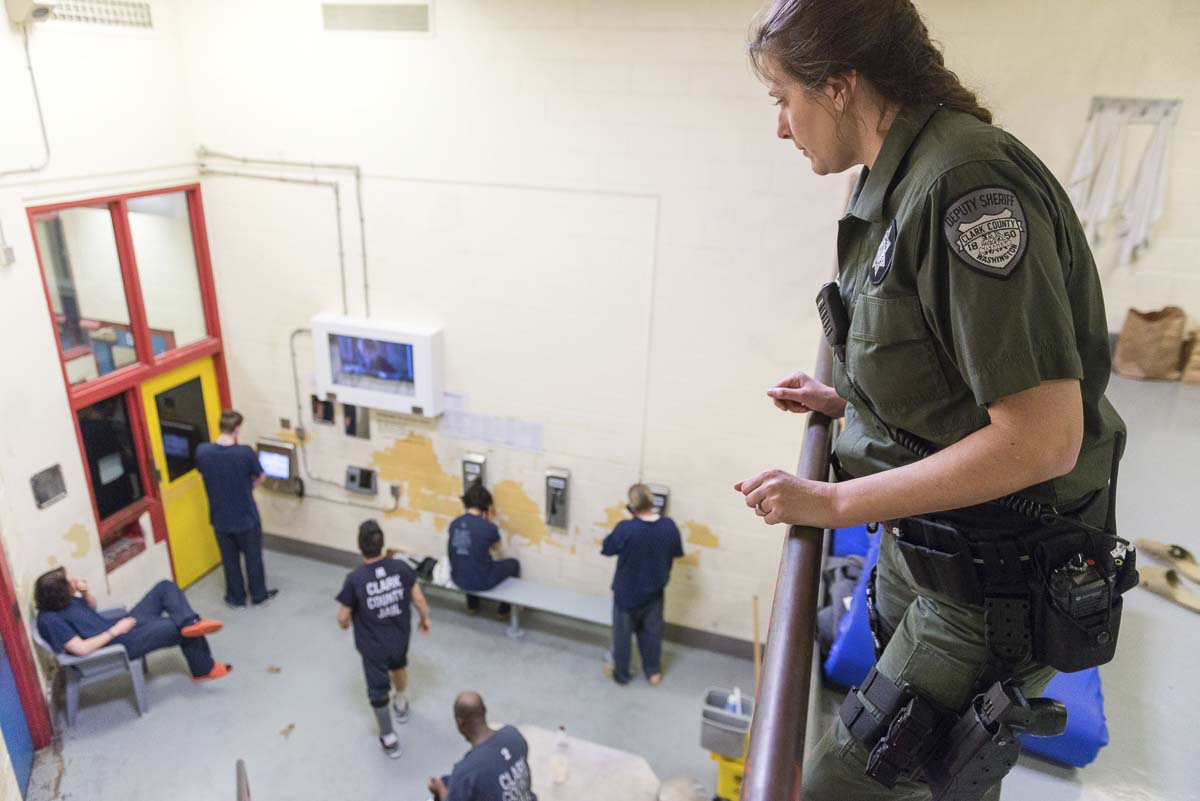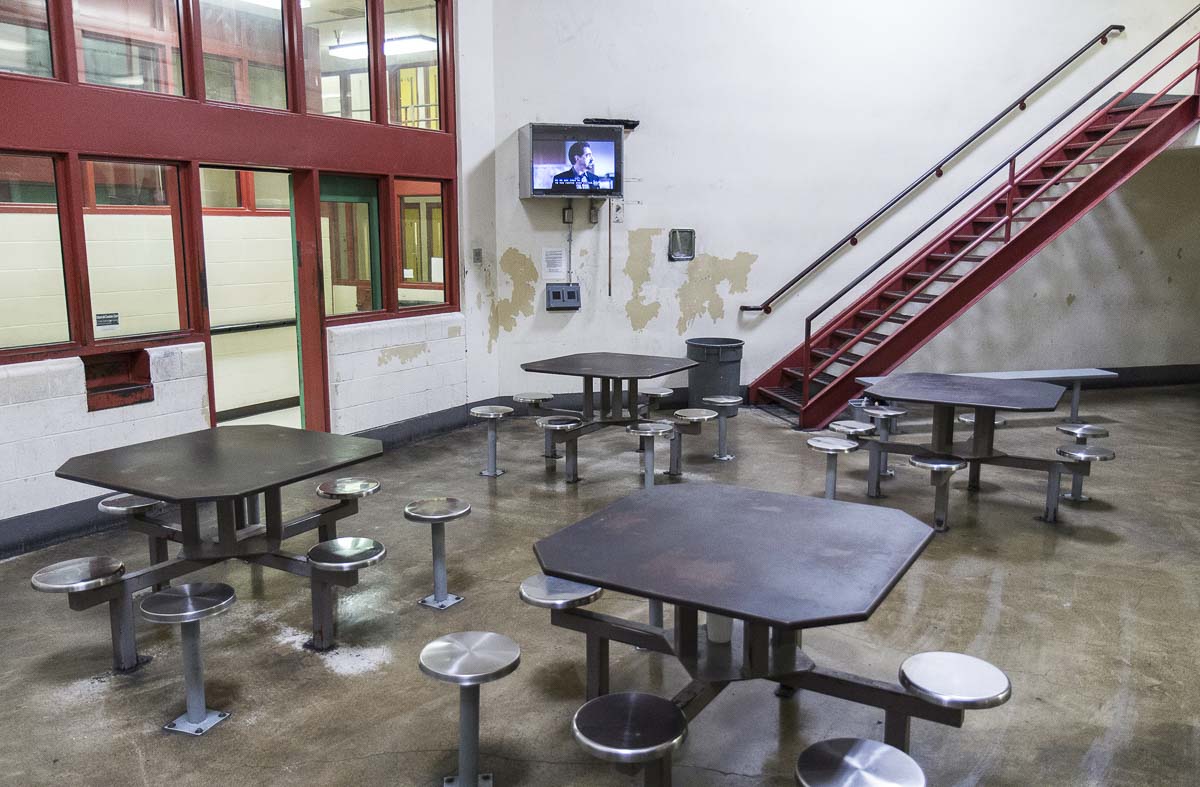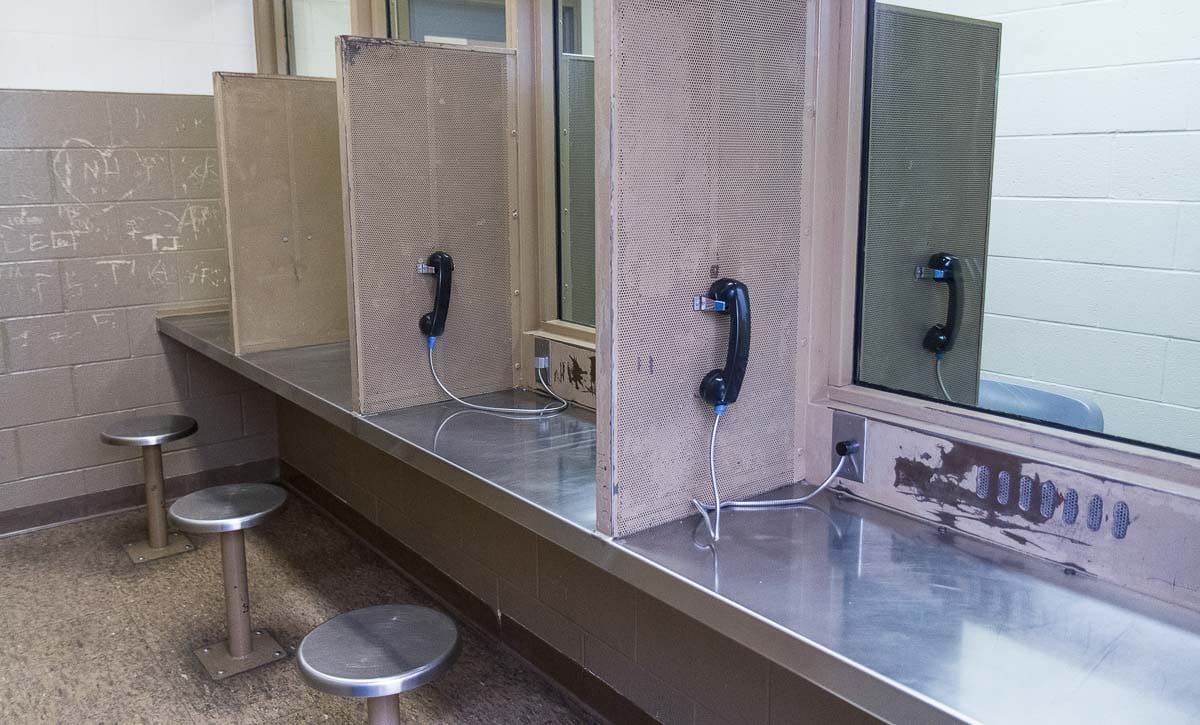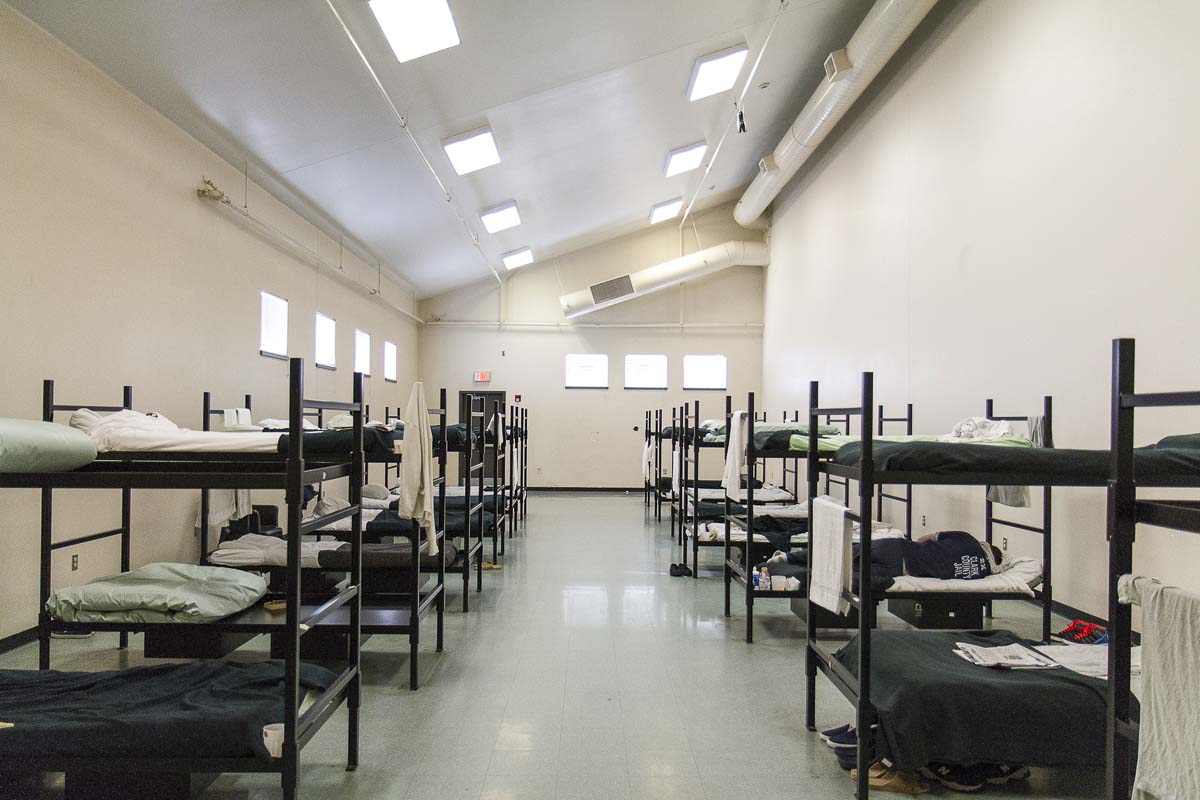The 25-member CFAC group will likely recommend a new jail with up to 880 beds
CLARK COUNTY — Sometime in the next couple of months the citizens of Clark County will face a sobering reality. It’s one that county officials have been facing for years now.
It was a year ago this week that the Corrections Facility Advisory Commission, otherwise known as CFAC, held their first meeting. The 25-member group, made up of mayors, city councilors, police chiefs, attorneys, nonprofit representatives, and social service providers, was expected to make a final recommendation to the County Council last November. But the group decided more time was needed to answer a number of questions.

At their most recent meeting this week the advisory commission finally determined the number of beds the jail should have by 2050, settling on a number between 850 and 880.
“This is a significant step toward ensuring Clark County has sufficient beds for future needs while being mindful of the cost to our community,” said CFAC Chair Craig Pridemore in a statement.
That number is down from the 1,028 beds the commission had been discussing, which likely would have come with a price tag close to $300 million.

In 2016, the average daily inmate population of the jail was 714. That’s in a jail with 793 total beds, 120 of which have been closed due to budget constraints.
The group is also working to narrow in on where jail services should be located. All would remain at the current main jail location on 13th Street, and the Jail Work Center on Lower River Road. The commission has suggested four options with different combinations of services at each site. The group is focusing on getting cost estimates for two options at the 13th Street location.
Clark County Manager Shawn Henessee says he expects the full council will get a chance to check out the commission’s updated recommendations sometime in June or July. That will be followed by a lengthy discussion of how to pay for the massive project.
“There’s absolutely no way that we can build a jail with our current budget,” says Henessee. “It just absolutely cannot happen.”

Initial estimates when CFAC members first began their work were that a new jail could cost as much as $284 million. It’s unlikely, even with fewer jail beds in the equation, that the price tag will decrease, especially with the cost of construction rising sharply in recent years. However, for Henessee, that’s not the most frightening aspect of the project.
“The capital costs are very significant, but what concerns me more is the operational costs, and that’s primarily the staffing,” he says. “Because those costs just continue to go up, unlike the capital costs which are fixed, which go down over time.”
For Henessee, the jail replacement represents just one element in the overall picture for the county’s growing facilities needs.
“I’ve got to look at so many other factors,” he said.
The Family Law annex is in a building with a lease set to expire in a few years, meaning they’ll need a new home. The Children’s Justice Center is also a concern. Add in the leaking courthouse roof, and toss in the prosecuting attorney’s office.
“We’ve got the prosecutors in a building that they were only supposed to be there for a year and they’ve been there for 15-plus years,” says Henessee, who adds that he’s focused on finding cost savings within county government wherever he can, and even looking at some potentially radical solutions to consolidating county-owned assets and departments.
“I’d like to consolidate as much as we can, and then that also cuts down on our facilities costs,” he says. “If the market continues to go well, I would be very open to selling the Franklin Center and the Dollie Building to help pay for other things. And then we get it back on the tax rolls which would also benefit everyone here at the same time.”

For Clark County Sheriff Chuck Atkins, who says he’s in his second and final term as the county’s top law enforcement officer, the jail could represent a chance to make a lasting impact in the region. But to get it done, he’ll need to convince voters it’s worth opening their wallets just a little bit more.
“People make mistakes. This could be somebody in your family that has to be in that jail,” says Atkins. “And I’m not saying we make a party factory out of it, but should it not be a place that is sanitary, that is treating people humanely, that is providing resources to correct their behaviors if they want it? If they don’t then we have a way to just lock them up, give them exercise, and let them ride out their time.”
The current jail was designed in the 1970s and built in the 80s, and the justice system has changed in the years since then.
“(The inmates are) locked in a big room and our people are locked in a small room watching them. There’s no huge amount of interaction, which I think is critical,” says Atkins. “In direct supervision model jails of today, that have been that way for 20 years-plus, not only are there less attacks and violence on the deputies and corrections staff, and the health facility staff within the jail, there’s an interaction where, just like right now, I’m talking with you and looking in your eyes and I can sense who you are, what you’re thinking, and how this is going.”
Pictures from inside the jail show cramped cells and holding areas, a dark and dingy interior, and damage to tables, walls and more. One review on Yelp called the jail a “rotting stinking dump, replete with psychic and chemical toxicity.” Another called it “dilapidated, out-dated and well and truly hated,” and that was from a tour of the jail before it opened.
For Atkins, a rebuild of the jail needs to come hand-in-hand with a renewed focus on better resources and programs elsewhere within the county.
“My jail is not a place for those with mental illness,” he says. “It’s not a place for the homeless that commit misdemeanors, but there’s nowhere else for them to go.”

If resources to deal with those populations come along with a new jail, Atkins says they can likely reduce the number of beds necessary in the new facility.
“If they include those resources and we do all alternatives to incarceration that we can impose, then we can keep that number down and keep that facility at a reasonable size for the next 10, 20, 30 years,” he says, while adding that there also needs to be a better focus on reintegrating inmates into society, and preventing the high rate of repeat offenders.
“Our jail is not a place that has all the programs that are needed, the reentry programs that are needed, to take people that rightfully so may need to be incarcerated, but give them the help that they need to change them as they exit back into our community,” Atkins said.
Atkins does not sit on the CFAC group and says that was by choice. He did sit on the steering committee that helped guide the initial discussions of the commission, but says he didn’t want it to feel as if the discussion was being dominated by the sheriff’s office.
“I didn’t want this to be a rubber stamp for what Chuck the sheriff wants,” he says. “I had my ideas about what I believe we need, I presented those, and now this group of 25 people … they will make a decision on size, scope, where it’s going to be and what it’s going to look like.”
The Corrections Facility Advisory Commission has another meeting scheduled at the County Public Works building on May 14 at 3 p.m. You can read more about their work at this link. A final presentation to the Clark County Council is expected in June or July.
The commission is composed of the following members:
- Craig Pridemore — chairman
- James McElvain — vice chairman, Vancouver police chief
- Kate Budd — Council for the Homeless
- Louis Byrd — Byrd Legal Services
- Carmen Carabello — Esther Short Neighborhood Association
- Bob Carroll — IBEW 48
- Judge Scott Collier — Clark County Superior Court
- Roger Entrekin — County neighborhood
- Vanessa Gaston — Clark County Community Services
- Tony Golik — Clark County prosecutor
- Eric Holmes — City of Vancouver
- Anne McEnerny-Ogle — Mayor of Vancouver
- Dr. Alan Melnick — Clark County Public Health
- John Moren — Community Services Northwest
- Kim Mosolf — Disability Rights Washington
- Judge Kelli Osler — Clark County District Court
- Bob Richardson — Battle Ground Police chief
- David Scott — Washougal city administrator
- Peter Seeley — Providence Hospital
- Melissa Smith — Camas city councilor
- Eulalia Soto — League of United Latin American Citizens
- Steve Stuart — Ridgefield city manager
- Greg Thornton — La Center mayor
- Scott Weber — Clark County




